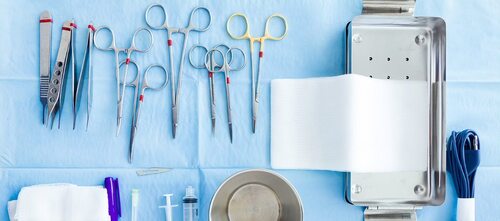In the field of medical diagnostics, research, and clinical testing, precision, reliability, and safety are critical. To ensure consistency and accuracy in outcomes, laboratories must adhere to strict medical standards when selecting and using equipment. Whether it’s advanced analyzers, centrifuges, or laboratory plasticware, meeting these standards is vital for quality assurance.
In this blog post, we’ll explore the essential medical standards for laboratory equipment, why they matter, and how trusted suppliers like ZMS HealthBio help ensure compliance.
🔍 Why Medical Standards Matter in Laboratories
Medical laboratories play a vital role in diagnosing illnesses, conducting research, and supporting public health systems. Even a small error in lab results can lead to incorrect treatment or diagnosis. That’s why international and national medical standards exist—to ensure the safety, accuracy, and quality of laboratory processes.
Medical standards provide:
- Quality assurance
- Operational safety
- Accurate diagnostics
- Traceability and accountability
✅ Key Medical Standards for Laboratory Equipment
Here are some of the most widely recognized standards that govern lab equipment:
1. ISO 13485: Medical Device Quality Management
This international standard ensures that manufacturers of medical equipment meet strict quality management requirements. Equipment and laboratory plasticware certified under ISO 13485 are proven to be safe and reliable for medical use.
2. ISO 15189: Medical Laboratories – Quality and Competence
This standard specifies the quality and competence requirements for medical laboratories. It covers personnel qualifications, laboratory safety, equipment calibration, and validation protocols.
3. FDA Compliance (U.S. Food and Drug Administration)
In the U.S., the FDA regulates medical devices, including many types of laboratory equipment. FDA-cleared or approved lab instruments and plasticware must undergo thorough safety and efficacy testing.
4. CE Marking (Europe)
CE Marking is mandatory for laboratory equipment sold in the European Economic Area. It confirms that the product meets health, safety, and environmental protection standards.
5. CLIA (Clinical Laboratory Improvement Amendments)
CLIA regulations set federal standards in the U.S. for laboratory testing on human specimens. Labs must use equipment that meets CLIA requirements to perform moderate or high-complexity testing.
Importance of Laboratory Plasticware Standards
Laboratory plasticware—such as pipette tips, microtubes, vials, and beakers—may seem simple but play a crucial role in medical lab accuracy and sterility. Here’s why medical-grade plasticware must meet regulatory standards:
- Sterility: Reduces contamination risk in biological samples
- Material Safety: Made from non-toxic, lab-safe plastics like polypropylene
- Precision: Calibrated for accurate measurements
- Durability: Can withstand sterilization processes like autoclaving
When labs use high-quality laboratory plasticware, it ensures better sample integrity and reliable results in clinical diagnostics.
🏥 How ZMS HealthBio Ensures Medical-Grade Quality
ZMS HealthBio is a trusted supplier of laboratory equipment and medical-grade plasticware in the USA. Here’s how the company supports labs in maintaining compliance with medical standards:
🔬 1. Certified Quality
All products offered by ZMS HealthBio, including laboratory plasticware, meet or exceed ISO and FDA requirements. This guarantees safe, sterile, and accurate performance in all lab settings.
🔄 2. Strict Quality Control
From raw material selection to final packaging, ZMS HealthBio follows rigorous quality control procedures to ensure every item is laboratory-ready.
📦 3. Wide Range of Compliant Products
Whether you’re outfitting a new lab or restocking essentials, ZMS HealthBio offers a full selection of certified lab items—from pipettes and centrifuge tubes to protective equipment and testing kits.
🌍 4. Eco-Conscious and Ethical Manufacturing
ZMS HealthBio also supports sustainable practices by offering reusable and recyclable laboratory plasticware, while maintaining compliance with environmental health standards.
📌 Tips for Choosing Standard-Compliant Lab Equipment
When selecting laboratory tools and materials, keep the following tips in mind:
- Check for ISO, FDA, or CE certification
- Choose sterile or autoclave-ready plasticware
- Ask your supplier for quality assurance documentation
- Use only trusted brands like ZMS HealthBio
- Verify compliance with national regulations (e.g., CLIA, OSHA)
Conclusion: Standards That Safeguard Science
Medical laboratory standards are more than just formalities—they are essential safeguards that ensure the quality and reliability of lab processes. Whether you’re using a high-tech analyzer or basic laboratory plasticware, compliance with medical standards is non-negotiable for safe and effective lab work.
By choosing certified suppliers like ZMS HealthBio, you not only meet these standards but also ensure long-term accuracy, safety, and success in your lab operations.



